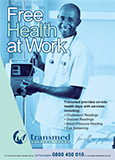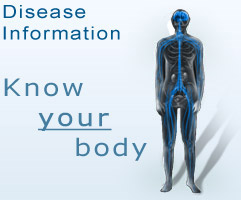Infective Endocarditis
What is infective endocarditis?
Infective endocarditis is an infection of the heart's inner lining (endocardium) or the heart valves. This can damage or even destroy your heart valves.
How does it occur?
Infective endocarditis occurs when bacteria in the bloodstream (known as a bacteraemia) lodges on abnormal heart valves or other damaged heart tissue. Certain bacteria normally live on parts of your body, such as the mouth and upper respiratory system, the intestinal and urinary tracts and the skin, without causing any negative symptoms. Some surgical and dental procedures cause a brief bacteraemia. Bacteraemia is common after many invasive procedures, but only certain bacteria commonly cause endocarditis.
Who is at risk?
Endocarditis rarely occurs in people with normal hearts. However, if you have certain pre-existing heart conditions, you're at an increased risk for developing endocarditis.
Some of these conditions include having:
- an artificial (prosthetic) heart valve;
- a history of previous endocarditis;
- heart valves damaged (scarred) by conditions such as rheumatic fever;
- various kinds of congenital heart defects;
- hypertrophic cardiomyopathy; and
- people who have had a heart transplant who develop a heart valve abnormality.
Only some of these patients will need antibiotic prophylaxis (medical procedure to prevent disease) before dental procedures (see next section).
Although endocarditis is a very serious disease, and many people may be at increased risk for developing it, most of these people do not contract it.
Can endocarditis be prevented?
Endocarditis is much more likely to result from frequent exposure to random bacteraemia associated with daily activities than from bacteraemia caused by a dental, gastrointestinal tract, or genitourinary tract procedure. Prophylaxis may prevent an exceedingly small number of cases of endocarditis, if any, in individuals who undergo a dental, gastrointestinal or genitourinary tract procedure.
The risk of antibiotics causing unpleasant side-effects exceeds the benefit, if any, from prophylactic antibiotic therapy. Maintenance of optimal oral health and hygiene may reduce the incidence of bacteraemia from daily activities and is more important than prophylactic antibiotics for a dental procedure to reduce the risk of endocarditis.
Not all cases of endocarditis can be prevented, because we don't always know when a bacteraemia may occur. In past years, it was recommended that patients at increased risk for endocarditis take prophylactic antibiotics before certain dental, gastrointestinal and genitourinary tract procedures. Recently, the American Heart Association's Endocarditis Committee, together with national and international experts on endocarditis, extensively reviewed published studies in order to determine whether dental, gastrointestinal or genitourinary tract procedures are possible causes of endocarditis.
These experts concluded that there is no conclusive evidence linking dental, gastrointestinal or genitourinary tract procedures with the development of endocarditis. They also concluded that endocarditis is much more likely to result from frequent exposure to random bacteraemia associated with daily activities, than from bacteraemia caused by a dental, gastrointestinal or genitourinary tract procedure.
Therefore, the current practice of giving patients antibiotics prior to a dental procedure is no longer recommended except for patients with the highest risk of an adverse outcome resulting from endocarditis. People at highest risk include those with:
- prosthetic cardiac valve or prosthetic material used for cardiac valve repair
- previous endocarditis
- congenital heart disease for these conditions:
- unrepaired cyanotic congenital heart disease, including palliative shunts and conduits
- completely repaired congenital heart defect with prosthetic material or device, whether placed by surgery or by catheter intervention, during the first six months after the procedure
- repaired congenital heart disease with residual defects (persisting leaks or abnormal flow) at the site or adjacent to the site of a prosthetic patch or prosthetic device (artificial body part or tooth structure), which inhibit endothelialisation
- cardiac transplantation recipients who develop cardiac valve abnormalities
The American Heart Association has concluded that an exceedingly small number of cases, if any, of endocarditis may be prevented by giving antibiotics prior to a dental procedure. If such benefit from prophylaxis exists, it should be reserved only for those patients at highest risk (listed above) who would have the worst outcomes if they contract endocarditis.
The American Heart Association recognises the importance of good oral and dental health, including regular brushing and flossing and regular visits to the dentist for patients at risk of endocarditis.
The American Heart Association no longer recommends administering antibiotics solely to prevent endocarditis in patients who undergo a gastrointestinal or genitourinary tract procedure.
What can you do?
Changes in these guidelines do not change the fact that your cardiac condition puts you at increased risk for developing endocarditis. If you develop signs or symptoms of endocarditis - such as unexplained fever - see your doctor right away. If blood cultures (to test blood for infection) are necessary to determine if endocarditis is present; it is important for your doctor to obtain these cultures and other relevant tests before antibiotics to treat endocarditis are administered.
If you've been told you have any of the cardiac conditions listed above, be sure to tell your dentist and other physicians who may be treating you.
Prophylaxis is recommended because endothelialisation of prosthetic material occurs within six months after the procedure.
References
 TransmedBanner4.jpg)

